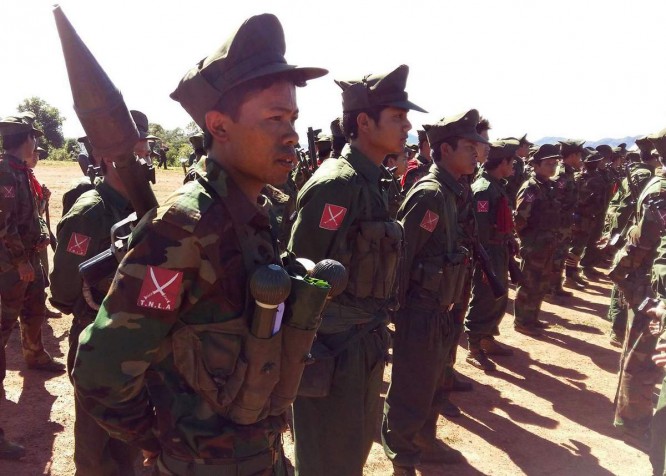Nestled among thriving tea plantations in the verdant Shan mountains, Kyaukme has been for many years a peaceful town, its ethnic Shan and Ta’ang residents co-existing in relative harmony.
However, an ongoing series of clashes between the Shan State Army-South (SSA-S) and the Ta’ang Nationalities Liberation Army (TNLA) is threatening to divide the two communities, with tensions said to be rising in the Shan State township, which is situated just 170 kilometres northeast of Mandalay.
“In the past, there was no problem between Shan and Palaung [Ta’ang] people – we were all friends, but after the fighting started last year, we’ve become alienated from one another to the point where you are now afraid to even greet your Palaung friend when you run into him in the street in Kyaukme,” said an ethnic Shan resident of the town.
Nang Moe Moe Saw, the public relations officer of the SSA-S in Kyaukme, said, “We have been advising Shan people to refrain from behaviour and actions that could lead to communal tensions. We don’t want to see a racial divide and would rather maintain harmony between the two peoples, just as it has been in the past.
“The Shan and Palaung people have co-existed for a long time. We don’t wish to see any conflict.”
She pointed out that the SSA-S has many ethnic Ta’ang members, suggesting that the militia, officially known as the Restoration Council of Shan State/Shan State Army, or RCSS/SSA, does not only take into consideration the interests of Shan people, but also the Ta’ang or Palaung.
[related]
Most agree that the two ethnic armies managed to co-exist with few tensions until late 2015 when the RCSS/SSA became a signatory to the Nationwide Ceasefire Agreement, an accord that the TNLA was barred from ratifying due to its allegiance to Kokang rebels and continued hostilities against Burma’s government forces.
Sai Tun Nyan, a Kyaukme MP in the Shan regional parliament, acknowledged that relations between the two communities had been strained over the past year, but said it had not escalated to a worrying extent.
“It has not reached a point where people are out to kill each other,” he noted, adding that much of the tension is fuelled by fake social media accounts and inflammatory postings.



